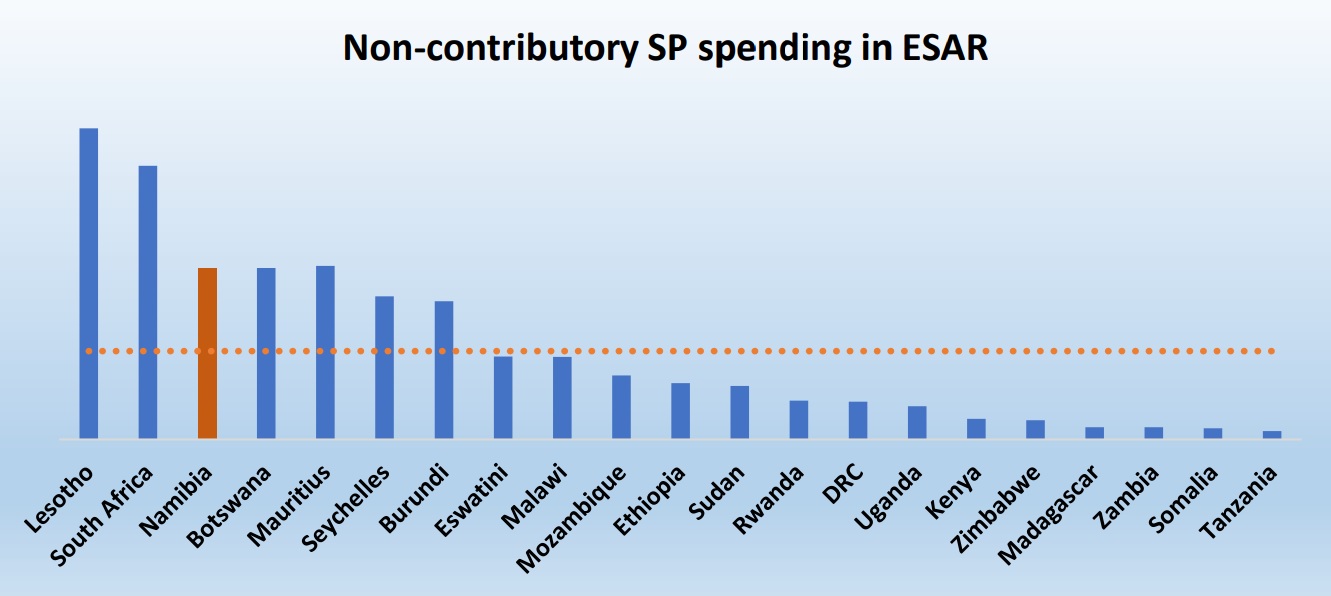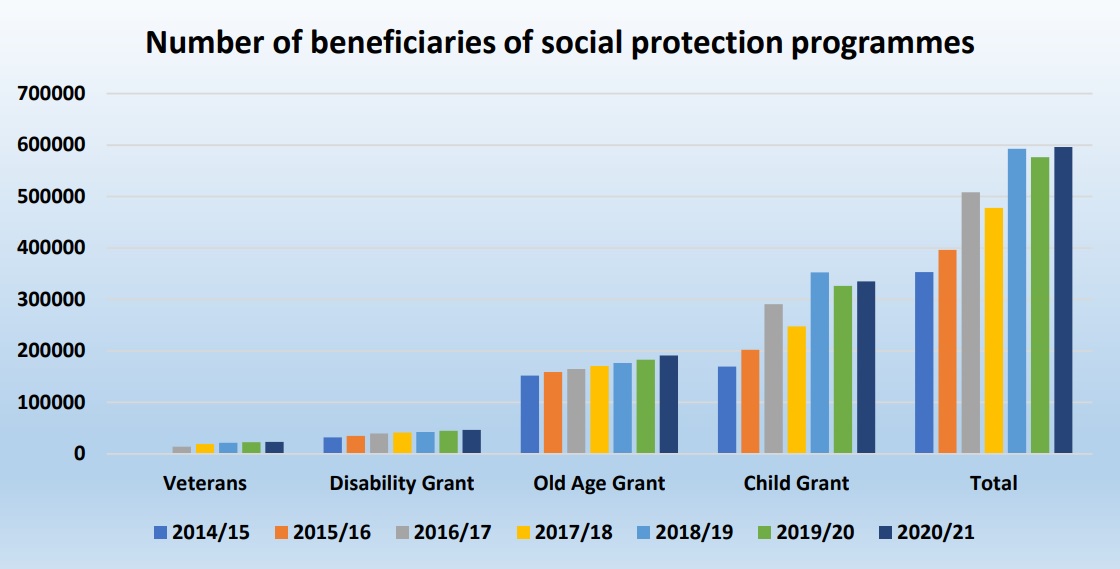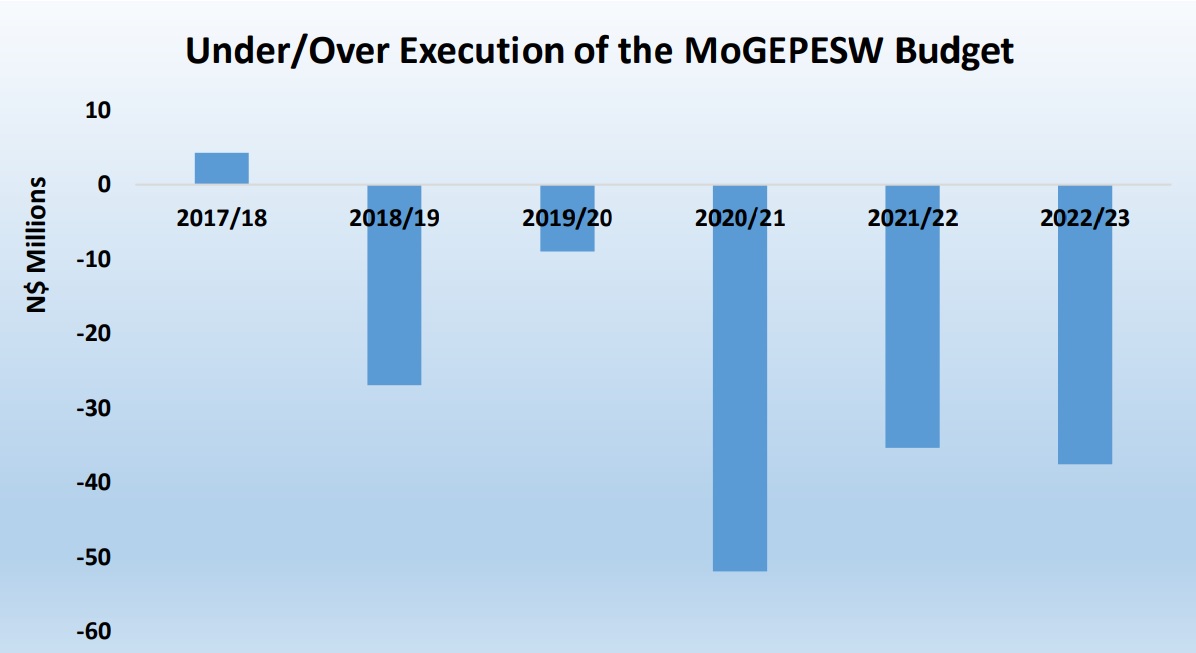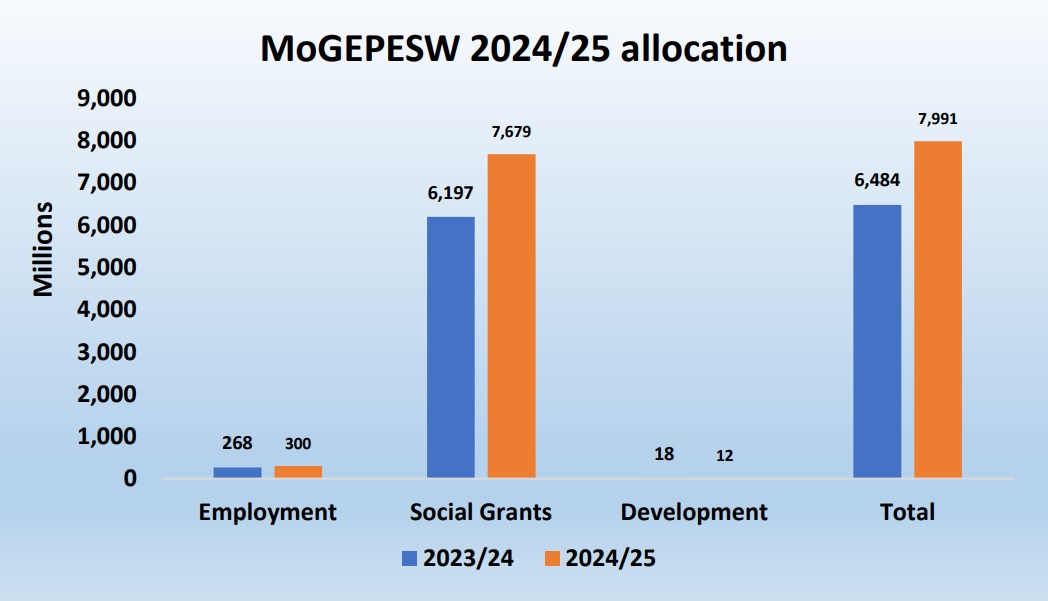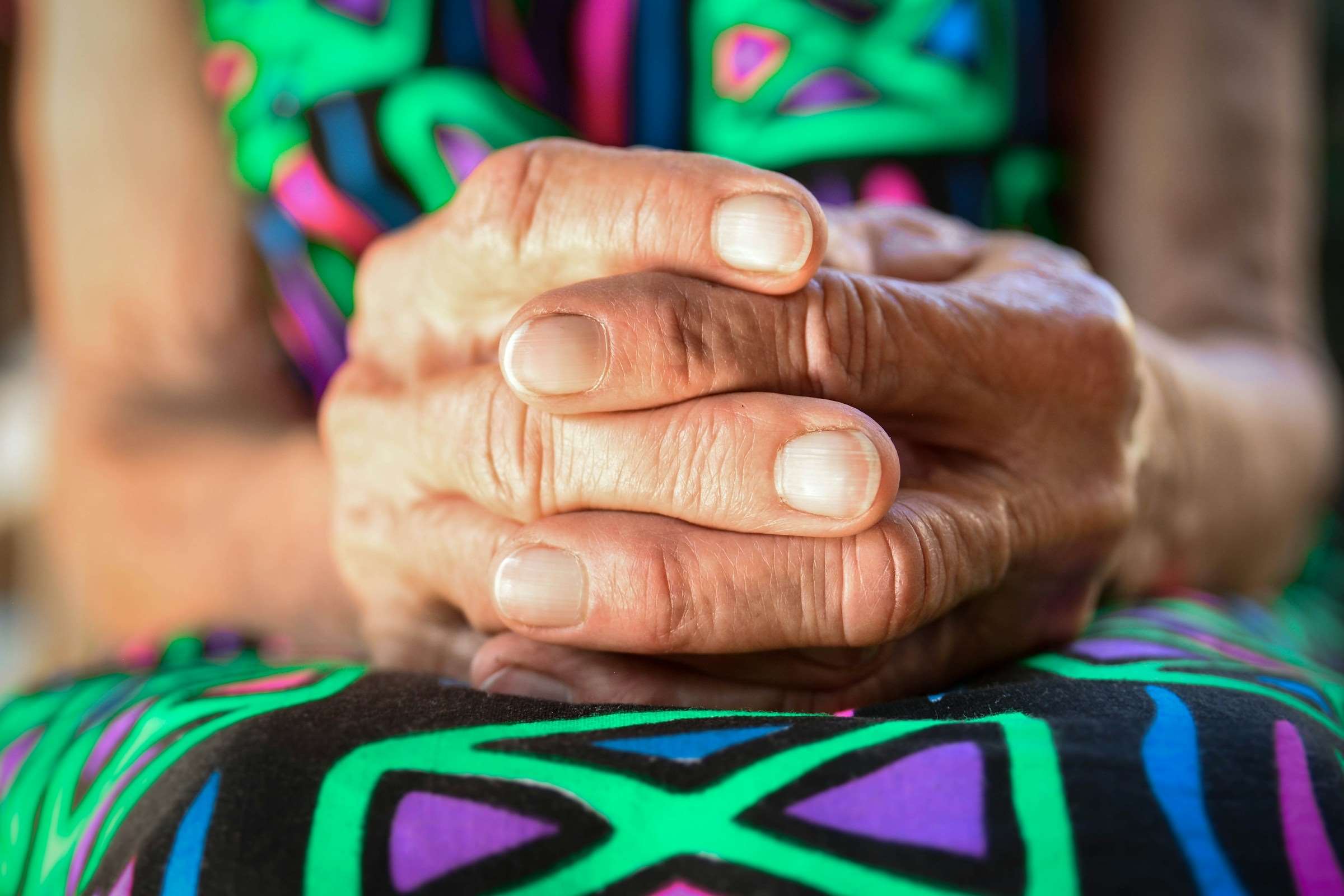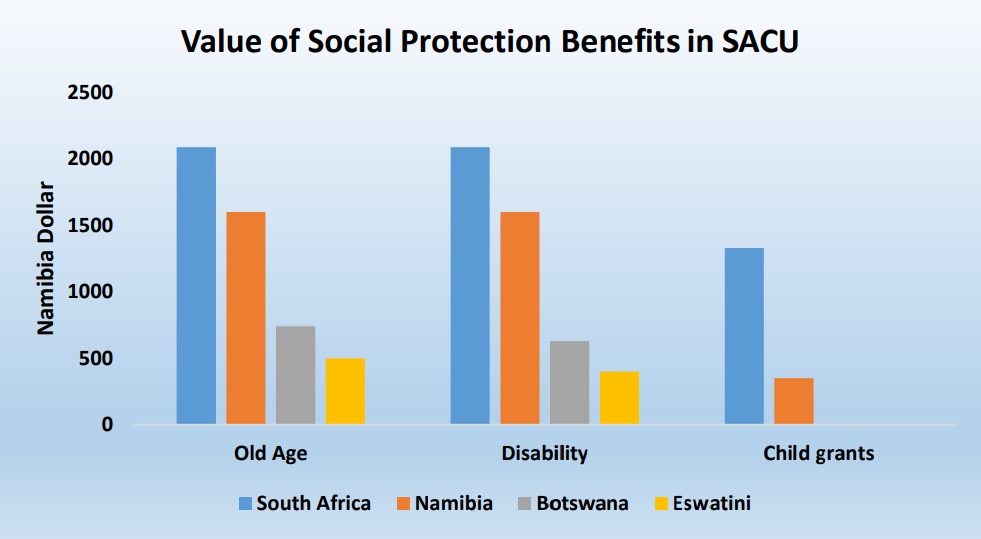Social protection bolstered to tackle inequality
Unicef review budget
The current level of the disability grant is deemed insufficient to significantly impact poverty reduction for individuals with disabilities.
In a bid to bolster social protection and address inequality, Namibia has announced a significant increase in its budget allocation for the fiscal year 2024/25. The allocated budget stands at N$8 billion, marking a substantial 23.2% increase compared to the previous year's budget.
This surge in allocation primarily targets current and social transfers, with a keen focus on expanding the value and coverage of social grants.
Notably, Namibia's social protection spending ranks among the highest in the Eastern and Southern Africa Region (ESAR), Unicef told members of parliament in its recent budget analysis and advocacy workshop.
Namibia’s social protection spend accounts for 3% of the country's gross domestic product (GDP) and positions it within the top three spenders in the region in this regard.
Coverage
Over time, Namibia has witnessed a commendable expansion in the coverage of social protection, boasting a remarkable 98% coverage for the old age grant and approximately 36% coverage for child grants.
These strides have played a pivotal role in mitigating both inequality and poverty within the nation.
However, to further enhance the impact of social protection initiatives, experts emphasise the necessity to amplify the coverage of child grants, as it promises the greatest return on investment.
Additionally, establishing and maintaining linkages between beneficiaries and social services is deemed imperative for maximising the effectiveness of these programmes.
While the recent increase in the value of the old age and disability grants, from N$1 400 to N$1 600 per month, is laudable, Unicef said the real value of the adjustment stands at N$1 511, considering the inflation rate.
Furthermore, maintaining the value of child grants while expanding coverage to accommodate more children on waiting lists remains a pressing concern.
Disability grant
The current level of the disability grant is deemed insufficient to significantly impact poverty reduction for individuals with disabilities, Unicef said.
The UN body advocates for a more informed approach in determining the size of disability benefits, considering the specific costs associated with each disability. Additionally, provisions must be made to support individuals caring for people with disabilities.
A concerning trend highlighted in the budget analysis is the recurrent underspending by the ministry of gender equality, poverty eradication and social welfare, averaging an annual underspend of 0.5%.
Cumulatively, this underspending has amounted to N$160.5 million over a six-year period.
Mainly attributed to delays in procurement of services and construction, this underspending contrasts with the timely disbursement of social benefits, Unicef said.



